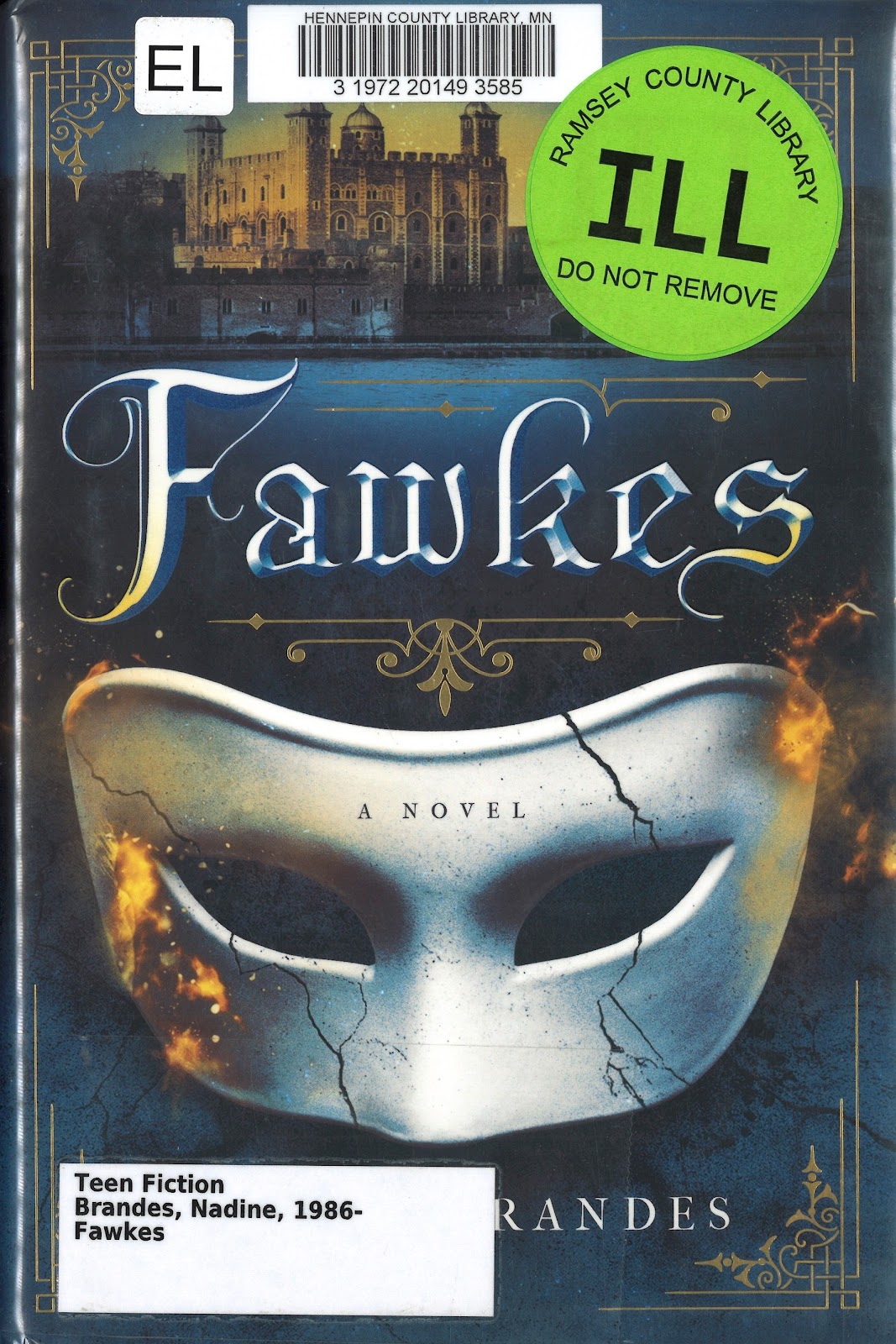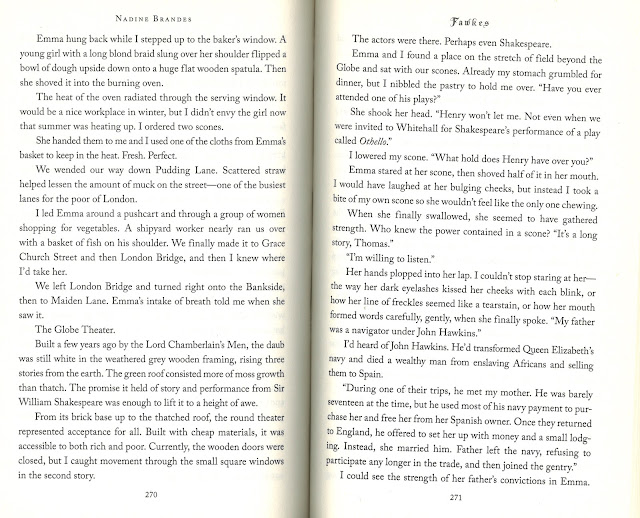My attention was called to this novel by a student in my Young Adult Literature class. It's a new novel centered on the Fifth of November, 1605 (Remember? Remember?) and featuring the son of Guy Fawkes.
Therefore, it's a historical novel, right?
Not exactly.
It's really a fantasy novel set in something like that historic period.
The plot is fairly complicated, but here's a quick overview. People are dying of the plague. But the plague isn't the plague—it's that people are turning into stone. Our protagonist (Guy Fawkes' son Thomas) has caught the plague in his eye, but the progress of the condition has abated. He and his father are part of The Keepers, a group of people with magical powers—they are each able to control one specific color. They have to get a mask and go through a choosing ceremony to bond with the color they're going to be able to control.
King James (and many others) are part of The Igniters, a rival group who is set on killing the Keepers; they believe the Keepers to be the cause (or causers) of the plague. Meanwhile, the Keepers think that blowing up Parliament and King James will end the tyranny of The Igniters—and the plague.
I found the novel to be generally well-written and interesting, though it does get pretty heavy-handed in one of its messages. The message is a good one: People should be judged by the content of their character rather than the color of their skin, to coin a phrase. But it's belabored as we explore the relationship between Thomas and Emma, the love interest who has a mixed-race background.
The historicity of the novel . . . well, once we work in all the magic and eliminate the religious motivations of Fawkes and his co-conspirators, we have to realize that we're not interested in historical accuracy. But neither are we reworking history. The main events that happened in 1605 London happen in this book—just in different ways and for decidedly different reasons. And there are many main events in this narrative that have to historic equivalent.
"What about the Shakespeare?" I hear you cry. And I can call upon one of my most frequent answers to similar questions: "Needs more."
On page 37 (at the top right of the image below), Shakespeare is mentioned in a way hopeful enough to keep me reading:
Unfortunately, we have to wait until page 270 to encounter the Globe Theatre and to hear Shakespeare's name again.
Did anyone else cringe when you got to the part about "Sir William Shakespeare"? If not, perhaps it doesn't sound as odd to you as it does to me. What if it said "William, Lord Shakespeare"? Maybe that coveys the extreme oddity of referring to Shakespeare in that way.
In any case, that's all the Shakespeare we get. He's mentioned as existing and as notable, and we learn that Othello has been staged prior to the actions in the novel (which is historically accurate).
All in all, it's a good book for those who like the mixed historical-fantasy (tragical-comical-historical-pastoral?), and, just perhaps, it might serve as a gateway to interest in the genuine history in which it operates.












No comments:
Post a Comment